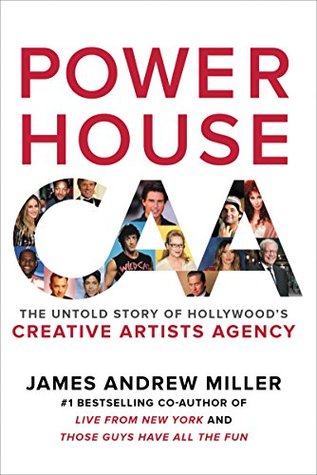More on this book
Community
Kindle Notes & Highlights
Read between
January 29 - March 20, 2018
During their time at William Morris, the CAA founders had objected to WM’s television packaging fee of 10 percent of the budget, believing it was “too rich” and “people couldn’t afford it.” CAA slashed it to 6 percent, and, according to Ovitz, “it increased the volume of our business so we wound up making far more than if we had charged the higher rate.”
So I called up the airline and called in a bomb scare to delay the plane and hung up.
When we discovered that almost nobody at the agency had a complete client list—save for Ovitz—we decided to pull one together. We had two reporters work on it for an entire year. When we published it, everyone in Hollywood was astonished. CAA represented every body. Ovitz had to shut the agency down for a week while the agents reached out to the clients, many of whom were upset. Dustin Hoffman was apparently ticked off that parts that he should have gotten went to Al Pacino and vice versa. A lot of the clients had no idea that their agents were handling that many people.
The entertainment industry is full of complex characters who have tremendously strong qualities as well as humongous flaws. For me, the goal has always been to study good qualities in order to learn what to do, and equally important, to study negative qualities to learn what not to do.
And remember, the way accounting works is profits come in over three to ten years, but losses are taken immediately. When there’s a big loss, it goes right to the bottom line.
Then I held up drawings of a controller for television that was a touch screen. I said, “You can touch these things on this screen, turn down the temperature in your house, and watch the news.” Later, Bob Goldman at CAA went to Ovitz and said, “This is really a huge idea and we should try to copyright the intellectual property.” I don’t know whatever happened about that. But we were basically talking about the iPhone in 1995.
I didn’t realize how little he really knew—not that he wasn’t smart, he just didn’t know. But he was more invested in making people believe he was a genius than actually letting people know that he was brilliant about certain things but completely not educated about other things. He didn’t have the vulnerability to say, “Hey, I don’t know about this. Teach it to me.” He couldn’t be vulnerable with anybody about anything. There were huge pockets of things he just didn’t know about how to run a company.
That Mike Ovitz ultimately talked himself out of the deal that Edgar offered him shows, in my opinion, how little he understood about the business.
SANDY GALLIN: Most people can only stand being an agent so long. And then you have to do something else or you want to kill yourself.
Then at a certain point John Hughes leaves and comes back with this titanium briefcase. And he opens it up, and he says, “There are fifteen completed screenplays that I’ve written in this briefcase that nobody has ever seen.”


